Angela Davis on the power of protest: ‘We can’t do anything without optimism’ | Civil rights movement
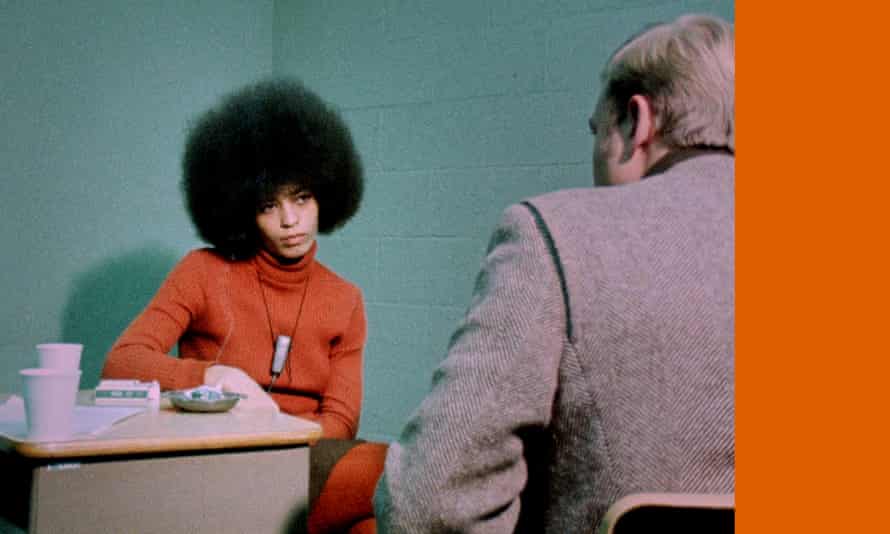
[ad_1]
The final time Angela Davis was in Birmingham, Alabama, she caught up with childhood pals and her Sunday college instructor. Whereas many people would reminisce about favorite courses and first kisses, they mentioned bombs.
“We talked about what it was prefer to develop up in a metropolis the place there have been bombings on a regular basis,” she says. Most notoriously, in September 1963, the Ku Klux Klan bombed the 16th Street Baptist church, killing 4 women. It wasn’t a one-off, says the legendary radical feminist, communist and former Black Panther. “Individuals’s properties have been bombed, synagogues have been bombed, different church buildings have been bombed. Individuals consider that as a single occasion, but it surely was extra indicative of the pervasive terror at the moment in Birmingham.”
When the women have been killed, Davis was 19, a superb younger scholar travelling by Europe. She learn concerning the assault in newspapers. “It was probably the most devastating experiences of my life. My sister was very shut with one of many women, Carole Robertson. I only in the near past hung out with Carole’s sister, Diane, who was certainly one of my shut pals rising up.” When Davis managed to telephone her household from France, her mom advised her she had pushed Carole’s mom to the church after the bombing. “And, after all, she acquired the horrible, horrible information …” She trails off.
“The again yard of one of many different women virtually abutted ours. We have been neighbours and pals. And my mom taught yet one more of the women. So we had connections with three of the 4 women who have been killed on that day.” By 1965, the FBI had the names of the bombers, however there have been no prosecutions until 1977.
Is that this what turned her right into a revolutionary? “I skilled it as a deeply private assault, and it was a short while earlier than I may stand again and take into consideration the bigger impression of it; the way in which it represented an effort to wipe out the resistance of youth. I believe it was in all probability one of many moments that helped me discover that path.”
Does she assume Birmingham formed her politics? “Completely. I do. I do,” she says in her low-pitched, mellifluous voice. So if she had grown up in New York she would have turn out to be a distinct Angela Davis? She grins. “Nicely, I went to highschool in New York and it was at highschool that I first learn The Communist Manifesto!” So we might have had the identical Angela Davis both means? “Precisely. Precisely.”

Back within the Nineteen Seventies, Angela Yvonne Davis had one factor on her thoughts: revolution. She was public enemy primary to some, a beacon of hope to others. When she went on the run from the legislation charged with the homicide of a choose and 5 counts of kidnapping, newspapers splashed her face throughout their entrance pages, naming her one of many FBI’s 10 most-wanted criminals. A couple of months later, her face was on the T-shirts of younger radicals the world over, combating for her launch.
Signal as much as our Inside Saturday e-newsletter for an unique behind-the-scenes have a look at the making of the journal’s greatest options, in addition to a curated record of our weekly highlights.
Davis’s turned the general public face of resistance, pinned to myriad badges, placards and posters. Her nice pure afro turned the coiffure of revolution. Prior to now she has stated it’s “humbling and humiliating … to be remembered as a hairdo”. Anyone who was anyone on the earth of tradition supported her. When Nina Simone visited Davis in jail, she was overwhelmed by all of the books in her cell and determined she wanted to study extra about social justice. Aretha Franklin offered to pay her bail. James Baldwin wrote her a letter saying, “We should combat in your life as if it have been our personal – which it’s – and render impassable with our our bodies the hall to the gasoline chamber. For, in the event that they take you within the morning, they are going to be coming for us that night time.” This offered the title for If They Come in the Morning …, an anthology of jail writings edited by Davis and printed in 1971 when she was in jail.
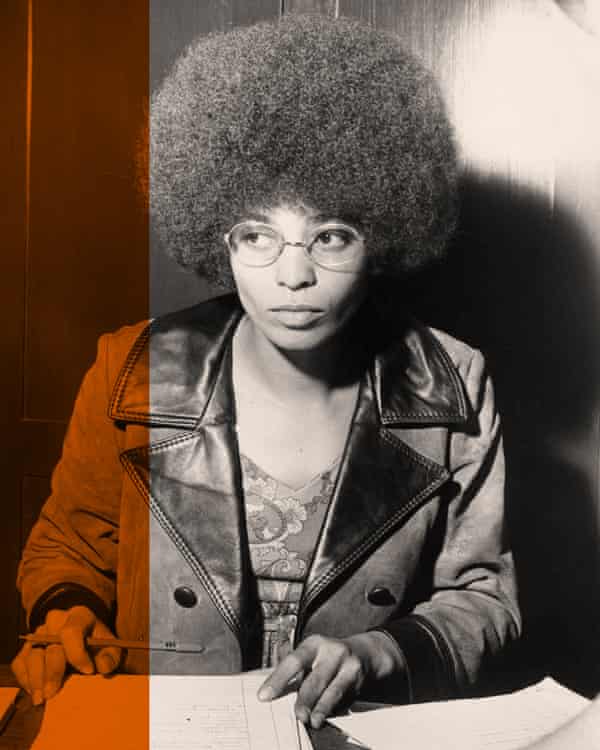
At 78 and at this time speaking to me on a video name from sunny Oakland, California, Davis has turn out to be an elder stateswoman of the civil rights combat, however her radical spirit shines as vivid as ever. Her hair is now a gray corkscrew bob – in its personal methods each bit as distinguished as the long-lasting afro of yesteryear. She has simply reissued her traditional memoir, with a brand new foreword. Angela Y Davis: An Autobiography was first printed in 1974, edited by the nice Toni Morrison, two years after Davis was acquitted of homicide, kidnap and prison conspiracy. When Morrison first talked to her about writing a guide, she wasn’t – she thought that at 26 she was too younger to say something vital, and didn’t need to write one thing that “targeted on private trajectory”. Within the new foreword, she says Morrison satisfied her to do it by insisting “on the significance of a political biography” by which she not solely advised the story of her life but in addition the historical past of the motion she had turn out to be concerned with.
She says revisiting her youthful self for the brand new version has each shocked and comforted her. “Once I reread the autobiography, I used to be disturbed by my language and by what I didn’t know then, however I used to be additionally impressed by the continuity – the truth that we’re nonetheless addressing points that we have been attempting to handle at the moment. The dissonance I skilled, notably when it comes to the language, helped me to measure our progress, and the way far we’d come.”
Davis speaks in fantastically measured sentences, however generally it’s important to dig for the main points. I ask if she is speaking about her perspective to homosexual tradition in jail, which appears surprisingly judgmental – not least as a result of she has been in a relationship with a girl for the previous 20 years. “Precisely!” she says, laughing. “I cringed.”
Within the memoir, she describes how girls would replicate conventional household buildings, “marrying” different girls and referring to them as husbands. Davis didn’t get it. Why ape the patriarchy? In jail she couldn’t carry herself to consult with a girl as a husband or father. Now she says she was narrow-minded. “On the time, we weren’t even utilizing the phrase homosexual. We used gay. And studying that made me cringe, too, as a result of now we now have developed a extremely capacious vocabulary to speak about each intimate and political experiences.” She’s being powerful on herself. The exceptional factor about her autobiography is how related it nonetheless feels.
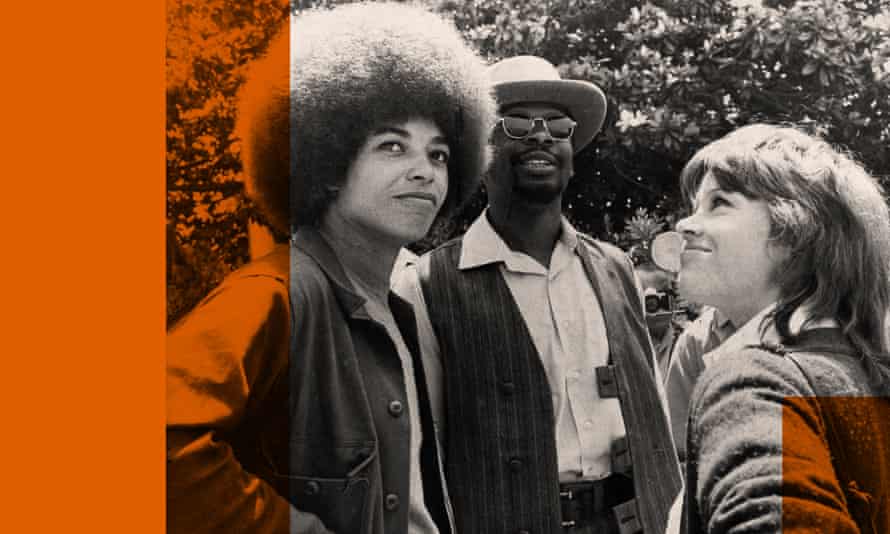
Within the Sixties and 70s, Davis says, every part was rigidly outlined – not merely when it comes to sexuality, but in addition revolutionary exercise. “I didn’t regard these [prison marriage] practices as resistance practices. I had an intransigent notion as to what counts as resistance.” All the things was about belonging to a celebration and toeing that get together line. “Now I see we’re the place we’re at this time exactly due to giant acts of resistance and small acts of resistance … I imagine we want organised resistance and the types of resistance that turn out to be practices in our day by day lives.”
Whereas many individuals turn out to be extra insular as they grow old, she has turn out to be ever extra outward-looking. Maybe it’s this that distinguishes the older Davis from the twentysomething Black Panther who discovered herself in jail going through a doable dying sentence 50 years in the past. Immediately, she has a unprecedented capability to soak up and juggle concepts, many seemingly at odds with one another.
Davis is speaking to me from a room lined with books within the dwelling she shares along with her civil accomplice, Gina Dent, a fellow professor on the College of California, Santa Cruz. The 2 girls have quite a bit in widespread. They’ve simply written Abolition. Feminism. Now. along with two different authors (Erica R Meiners and Beth E Richie). On the coronary heart of the guide is the demand to defund the police, demilitarise the military and halt jail building. The authors argue that each one three perpetuate violence, inequality and structural racism. Davis’s politics are expressed not merely in what she writes, however how she writes. Though there are 4 authors, the guide is written in a single voice. Its type displays her perception in collective motion.
When she wrote her memoir, the idea of intersectionality was not extensively identified, although many ladies of color had been fighting the methods they have been discriminated in opposition to due to each their intercourse and their race, and the way they impacted on one another. Though Davis was already a well-known radical feminist, she says she typically felt remoted, and questioned her place throughout the motion.
“There was a backwardness within the early days of sure components of feminism that refused to recognise the diploma to which gender is traditionally and socially constructed. For this reason I refused to contemplate myself a feminist for some time – the insistence that all your loyalty must be to girls, and that tended to imply white girls. I can keep in mind being requested, ‘Are you Black or are you a girl?’”
What?
She laughs. “Sure. I used to be requested that. Even after we had no precedents for intersectional notions I made it very clear, and I’m not the one one, that for a lot of Black girls the problems have been intertwined. We couldn’t separate one from the opposite.”
Who requested this? “Oh, a few of these white feminists I didn’t like.” She smiles. No names. What did you say? “I stated it’s a ridiculous query. That is the facility of racism, that they may not recognise, for instance, that in struggling in opposition to gender violence directed in opposition to girls, one additionally needed to take up the racist use of the rape cost, and so they have been half and parcel of the identical battle. In fact, the intransigent white bourgeois feminists couldn’t settle for that.”
Davis is not any stranger to splits on the unconventional left or factional feminism. She has seen all of it her life, and regretted all of it her life. She doesn’t perceive why some feminists at this time see trans girls as a risk. “There are some feminist formations which are very against the trans presence, and that’s so backwards. These of us who’re extra versatile argue that if you wish to do away with violence directed in opposition to people on the earth, whether or not it’s racist violence or gender violence, it’s important to assist Black trans girls who’re the goal of extra violence than some other group of individuals. And if we make advances in our wrestle to defend Black trans girls, these victories could be felt by all communities that endure violence.”
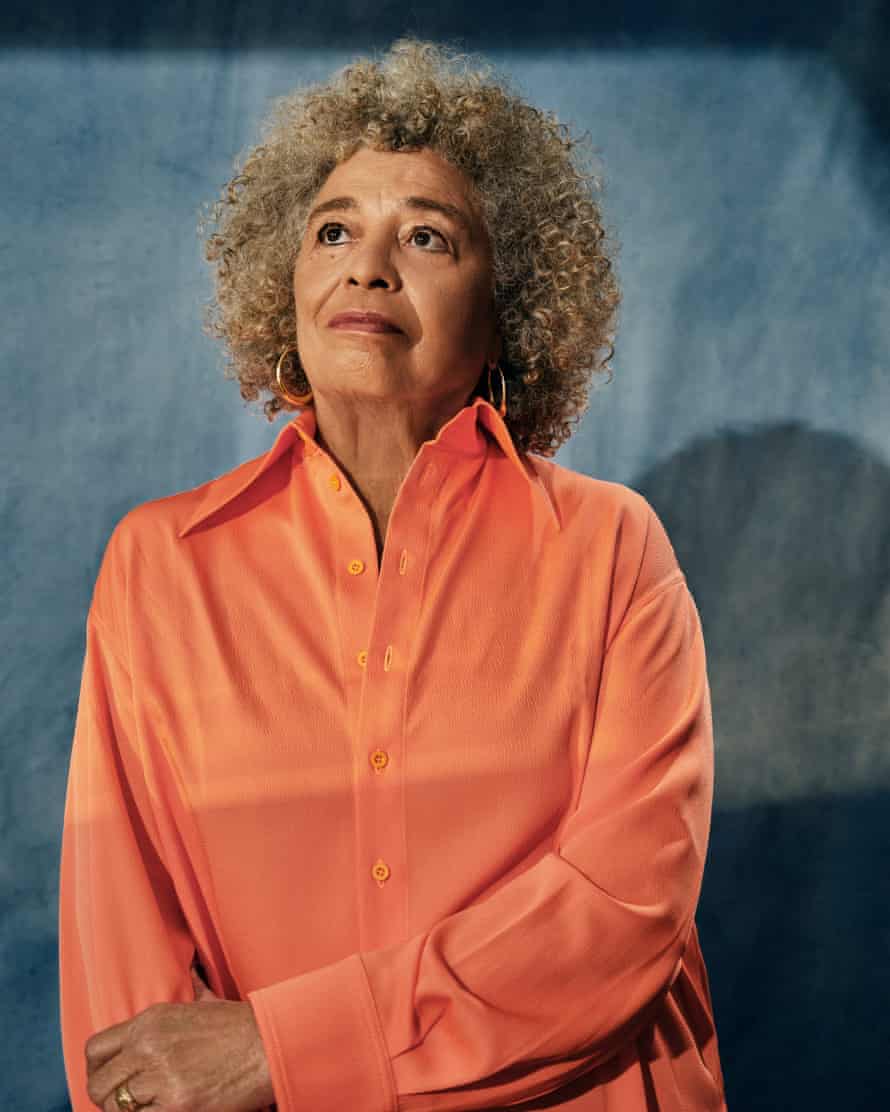
She says this combat reminds her of the times when she was requested to decide on between being a girl and being Black. In her autobiography, she describes how lots of the Black male revolutionaries regarded their activism as an assertion of their masculinity and believed girls had no management function to play. Even so, she says, again then she didn’t absolutely respect how she had been formed as a lot by gender as by race. Within the intervening half-century, she has realised how the 2 are umbilically linked within the combat for a greater world.
Davis inherited her revolutionary spirit from her mom, Sallye, a schoolteacher and activist who was concerned within the Southern Negro Youth Congress, organised by Black communists. Sallye was a part of the profitable marketing campaign to launch the Scottsboro Boys (9 Black youngsters falsely accused of raping two white girls) – a case seen as a milestone within the emergence of a nationwide civil rights motion. Davis’s father, Frank, was additionally a instructor and an Episcopalian lay minister. “He was not as outspoken as my mom, however he made his contributions in a quieter means.” Each her mother and father grew up “grime poor” and solely managed to turn out to be lecturers as a result of they have been financially supported – her mom by the principal of her highschool, her father by the Episcopalian church. Her father gave up educating and purchased a service station and parking zone to allow him to higher assist Angela and her three siblings.
Davis grew up with a burning sense of justice – and injustice. She acquired an excellent training at her segregated college, the place she was taught about Black historical past, and endowed with pleasure. “The lecturers felt the necessity to domesticate a technology who can be able to resisting the ideological racism surrounding us.” Her mom advised younger Angela that the world they have been residing in was not the world of the long run. “She at all times stated: always remember that that world is just not organised in the way in which it needs to be and that issues will change, and that we are going to be part of that change.”
In her late teenagers, Davis labored part-time to earn sufficient cash to journey to France and Switzerland, and to attend the eighth World Competition of Youth and College students in Helsinki. When she returned dwelling in 1963, the FBI interviewed her about her attendance on the Soviet-sponsored competition. After a yr finding out literature in France, she enrolled on Herbert Marcuse’s philosophy course on the College of Frankfurt. Davis later stated: “Marcuse taught me that it was doable to be an instructional, an activist, a scholar and a revolutionary.”
In 1969, aged 25, she was employed as an assistant professor of philosophy at UCLA. A marketing campaign spearheaded by California governor Ronald Reagan resulted in her sacking for being a member of the Communist get together USA. By then she was also called a radical feminist and affiliate of the LA chapter of the Black Panther get together. When a courtroom dominated she couldn’t be fired solely due to her affiliation with the Communist get together, she resumed her submit, solely to be fired once more in June 1970 for “inflammatory language” utilized in 4 speeches, together with repeatedly referring to the police as “pigs”.
By this time her mentor was the Black Panther George Jackson, who had been convicted of armed theft in 1961. In January 1970, Jackson and two others have been charged with murdering a jail officer in Soledad jail, California. The three males turned generally known as the Soledad Brothers and Davis campaigned for his or her launch. Davis got here to like Jackson and befriended his youthful brother, 17-year-old Jonathan, who accompanied her on public appearances as an off-the-cuff bodyguard.
On 7 August 1970, Jonathan Jackson used weapons registered in Davis’s title (she was often receiving dying threats from white supremacists at this level) to carry up a courtroom at Marin county courthouse. He took superior courtroom choose Harold Haley and 4 others hostage to safe the liberty of the Soledad Brothers. As he tried to drive away, police opened fireplace, and Jonathan Jackson, Choose Haley and two prisoners have been killed. The siege was headline information. As was the truth that the weapons Jackson used have been owned by Davis.
On 14 August, Davis was charged with “aggravated kidnapping and first-degree homicide within the dying of Choose Harold Haley”, and a warrant was issued for her arrest. By then, Davis had gone on the run. 4 days later, FBI director J Edgar Hoover put Davis on the FBI’s 10 most-wanted fugitives list; she was solely the third girl to be listed. On 13 October 1970, FBI brokers discovered her in New York.
Davis has at all times stated she had no prior information of Jackson’s plans, and was shocked by the incident and the dying of her younger pal. How does she look again at her time in jail? It’s complicated, she says. In a method, it was terrifying; in one other, she received a greater training than any college may present. She noticed for herself how a lot simpler it was to finish up in jail in the event you have been working class and an individual of color, and the way a lot tougher it was to get out. Many ladies she met have been locked up for petty crimes however couldn’t afford the $500 bail, so have been caught within the system. She found that, though slavery had been abolished in 1865, it was thriving in US jails due to the thirteenth modification making a particular allowance for penal labour. Davis realised she needed to synthesise race, class and gender in her evaluation. “It was a time of studying. Deep studying. That interval outlined the trajectory of the remainder of my life.”
Was there a time when she thought she can be executed? “Sure, there was. There was. There was.” She repeats it gently, like a mantra. “I felt terrified that I’d find yourself within the gasoline chamber in San Quentin jail. Ronald Reagan wished to see that, Richard Nixon wished to see that, J Edgar Hoover. So many individuals have been satisfied that regardless of my innocence of the particular fees I’d be like Sacco and Vanzetti, the Rosenbergs, or any of the opposite political figures who’ve been put to dying. And, yeah, it was terrifying. I had nightmares.”
However on the skin, the combat for her launch grew greater and larger. It’s this, she says, that gave her hope. “You already know, I acquired over 1,000,000 letters from schoolchildren in East Germany alone.” A million, I repeat, attempting to image that many letters. “Sure! One million postcards. Schoolchildren have been alleged to ship me a rose for my birthday, so that they drew roses on postcards. It was known as 1 Million Roses for Angela Davis. At first they began to come back in massive mailbags. They’re at Stanford College now, within the archives.”
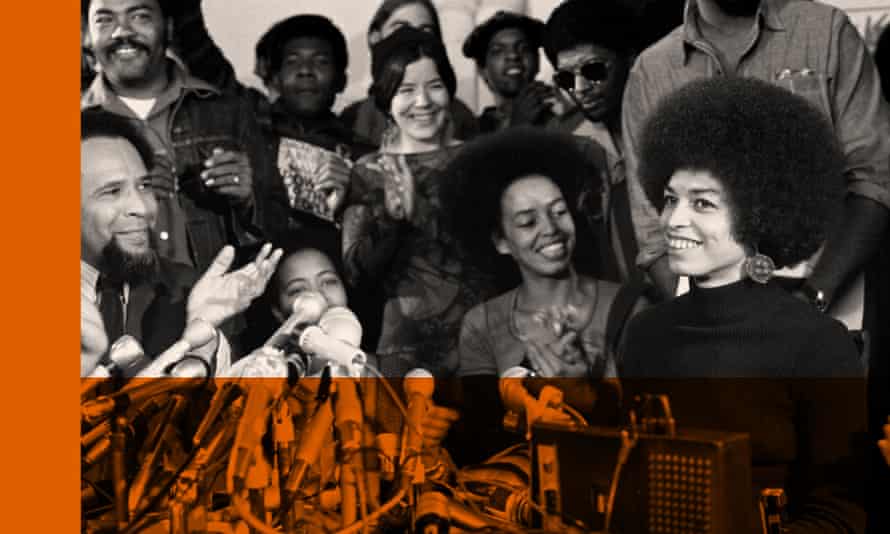
There have been campaigns worldwide. “Ultimately the fear was displaced. I realised that even when I ended up being put to dying I’d not be alone; that they might all be strolling with me. And that’s what gave me braveness. I realized concerning the worth of mass actions and collective wrestle; that lesson has remained with me.”
It appears to me she has at all times been an optimist. “Nicely, you already know, we want hope. We are able to’t do something with out optimism. My pal Mariame Kaba, who’s a part of the jail abolitionist motion, says hope is a self-discipline. Our job is to domesticate hope, and that’s what I at all times attempt to do.”
The marketing campaign made her really feel much less remoted however she discovered the eye embarrassing; shaming, even. There have been so many ladies in jail with no person for assist, and right here she was along with her million postcards. She was grateful, however she had by no means wished to be a pin-up. “I really feel greatest once I’m working within the background – educating and organising is the work I really like doing. I used to be very disturbed in jail as a result of I noticed so many ladies who received such a foul deal. It was not proper for me to be the main focus of a lot consideration once I already had a community of individuals.”
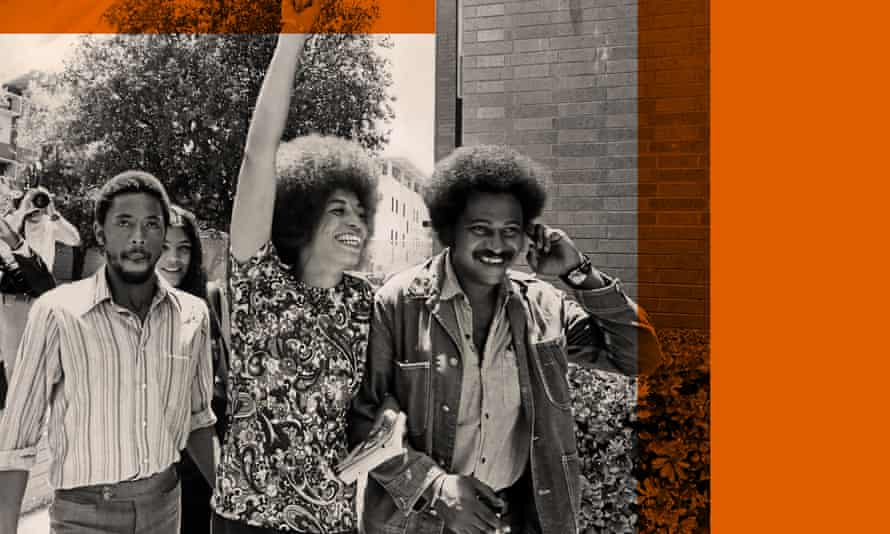
Davis was launched from jail after 16 months and acquitted 4 months later, in June 1972. Once more, she was fortunate. Whereas she was jailed, the dying sentence was abolished in California, permitting her to be bailed. At her trial, the prosecution argued that she was not a political prisoner; that she had offered the gun merely due to her love for George Jackson. It was a straightforward argument to refute. There was a lot proof of a lifetime of political wrestle and that she had campaigned vigorously for all three Soledad Brothers.
By the point she was launched, George Jackson was useless, killed whereas attempting to flee jail. Does she assume they might have married if he had lived? “That will have been a chance, however I can’t say for positive as a result of I do know that emotions are intensified below the strain of incarceration, and folks change.” So far as males go, was he the love of her life? For as soon as, her speech turns into damaged. “Erm, properly, that will … chances are you’ll categorical it that means. Erm, yeah.” She shortly gathers herself. “On the similar time, I need to emphasise how deep that political relationship was. I spent nearly all of my time with George speaking with him about radical points, and likewise with different companions that I’ve had, female and male.”
With Dent, who’s in her late 50s, she says it’s been the identical. “We received to know one another as a result of I used to be making a contribution to a guide she was modifying, so we have been working collectively intellectually lengthy earlier than we got here collectively.” She takes a sip from her mug. I ask what she is ingesting. “Inexperienced tea and ginger.” That’s one other massive change. She lives a more healthy life now. Is it true you used to smoke 4 packets of cigarettes a day? “Yeah, I used to be a horrible smoker. I smoked Gauloises. Now I attempt to train and eat vegan.” As she talks, I’m taking a look at her completely painted black nails. “I painted them myself!” she says proudly. She appears to be like youthful and trendy – dressed all in black, apart from satin-blue streaks in her scarf.
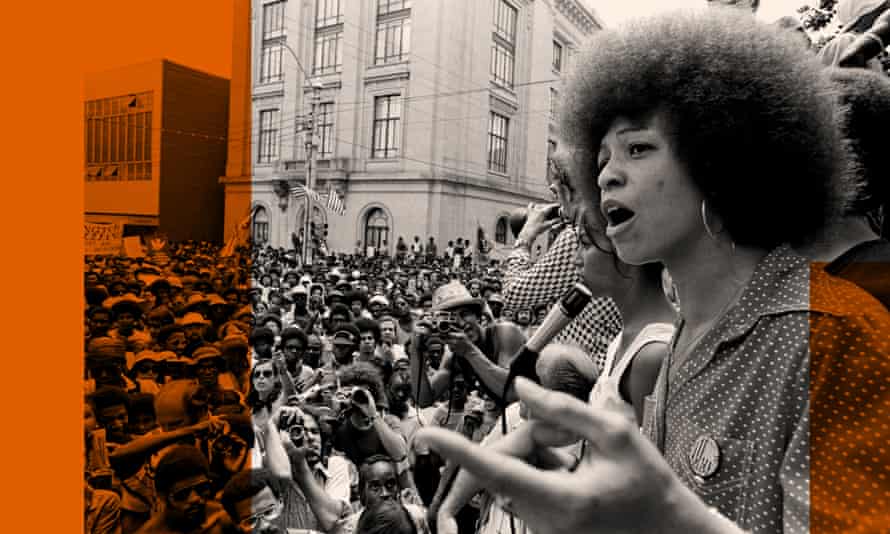
It was solely when she got here out of jail she found what her household had finished for her and what it had taken out of them. “My mom would inform me about individuals who she thought have been her pals who severed connection along with her as a result of they didn’t need to be related to someone who had a communist daughter.”
I wager there have been occasions she wished you weren’t a communist and hadn’t received your self in a lot hassle, I say. “Oh yeah! I’m positive. I’m positive!” She laughs. “I considered that myself generally. However each my mom and father have been actually happy with the work that I did and the assist that got here from my siblings. My sister Fania travelled all around the world once I was in jail. My brother Ben, who was a soccer participant within the NFL, suffered consequently – they put him on the bench. However, his spouse organised the biggest political rally in Cleveland across the demand for my freedom.” Why did they bench him? “As a result of he known as out the journalists and requested them: why are you not asking me about my sister, who’s in jail? We see the NFL on the centre of many waves of resistance now, however there was a nascent politicisation at the moment and my brother was part of it.”
She talks about a picture she loves that symbolises the way in which her household fought for her. “There’s footage of my mom talking at a rally the place she’s holding my sister’s child woman in a single arm, with the opposite arm outstretched in a fist and calling for my freedom. I stated: ‘Wow! I am my mom’s daughter.’”
After her launch, Davis continued the place she had left off – along with her profession and her activism. She turned a professor of ethnic research, and is now professor emerita of historical past of consciousness and feminist research at UC Santa Cruz. She ran twice as vice-president for the Communist get together USA, and devoted a lot of her life to combating for fellow activists who remained in jail and for the abolition of the jail system. Her concepts on abolitionism have developed over many years, and at the moment are championed by sections of the Black Lives Matter motion and have prominently in Ava DuVernay’s documentary on the topic, 13th.
It’s humorous, she says – so many individuals inform her it have to be miserable combating for a similar issues she was combating for 60 years in the past. However she’s not having any of it. A lot has modified; she cites the truth that America elected Barack Obama twice. How does she assume he did? “He may have finished much more, and I’m indignant that Guantánamo remains to be there, as a result of he was going to close Guantánamo, proper? However on the similar time, it was a world historic second, and I treasure that second and that it was enabled by younger individuals who refused to imagine it was inconceivable to elect a Black particular person.”
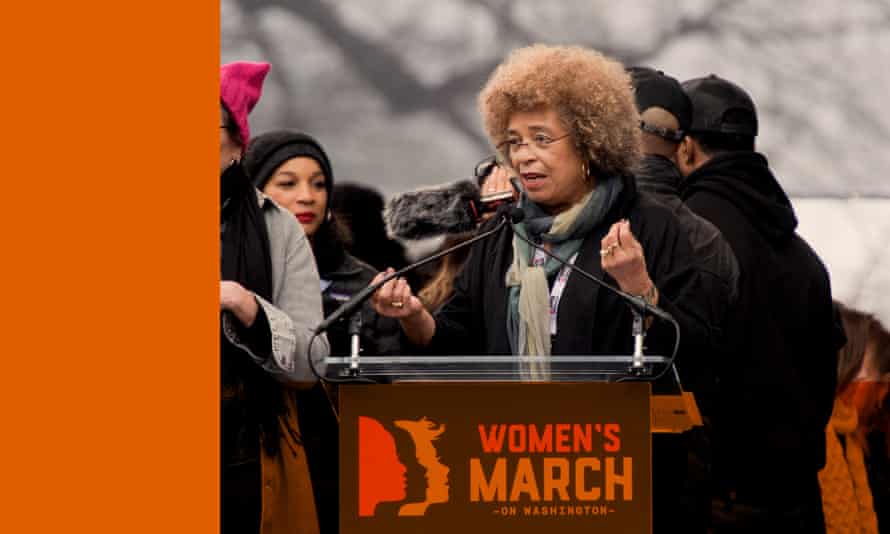
She says you possibly can’t merely blame Obama for any disappointments. “Once more, we are able to’t venture all of our energy as a collective of human beings on to a single particular person. So my critique can be a self-critique; there ought to have been mass demonstrations forcing him to maneuver in a extra radical course. On the similar time, I don’t assume Black Lives Matter would have emerged besides throughout the context that was created by the election of Obama.” The truth that there’s now a mass mainstream anti-racist motion, involving white individuals in addition to individuals of color, is true progress, she says.
As for President Biden, Davis believes his conservatism is a historic inevitability post-Trump. “When there are moments of upheaval, the restoration interval at all times tends to emphasize the conservative.” However she says she has by no means targeted on the dominant events. “I believe it’s essential to assume extra capaciously concerning the that means of politics. The hundreds of thousands of people that poured on to the streets within the aftermath of George Floyd’s lynching constituted a drive that was a lot extra highly effective than any political get together. And if there’s a new second of attempting to recognise structural racism that occurred because of these demonstrations, then I’d say these persons are the motors of historical past. It’s not about who the president was or is.” She had witnessed deaths in police custody all through her life. The distinction now was that mass protest (and digital expertise) ensured officers may now not go unpunished. Final June, Floyd’s killer Derek Chauvin was sentenced to 22 years and 6 months for second-degree homicide.
Good comes out of dangerous, Davis says. The pandemic highlighted structural racism in each the US and the UK. In Might 2020, analysis from the non-partisan APM Analysis Lab revealed Black People have been three times more likely than white People to die of Covid. In the identical month, the Workplace for Nationwide Statistics revealed that Black individuals have been four times extra more likely to die of Covid than white individuals in England and Wales. Not solely is the analysis being finished to show the existence of structural racism, Davis says, however individuals now are shouting about it. “There are younger activists and students who’re so significantly better at explaining what we tried so exhausting to determine. Now they simply take it with no consideration, and I really like that.”
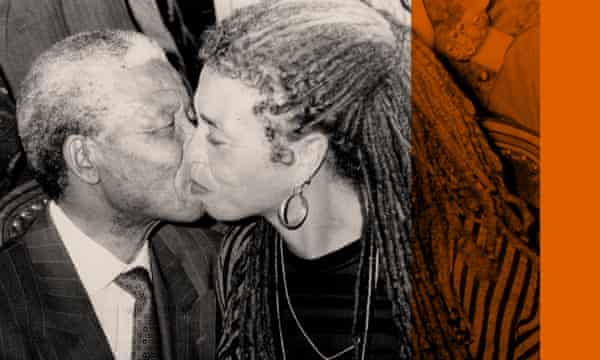
You appear so content material, I say. “Nicely, at this explicit second I actually am completely satisfied to be alive and wholesome and to have the ability to hyperlink what is going on at this second to previous histories.” Once more, she says how fortunate she is. “I treasure this time, as a result of it means I get to see that the work that was finished 50 and 60 years in the past actually mattered, regardless that there have been moments when all of us felt it was in useless.” So lots of the individuals in her life didn’t reside to see the progress that has been made – her mother and father; George and Jonathan Jackson; the 4 women murdered on the Birmingham church. “I really feel that I’m a witness for many who didn’t make it this far.”
[ad_2]
Source link